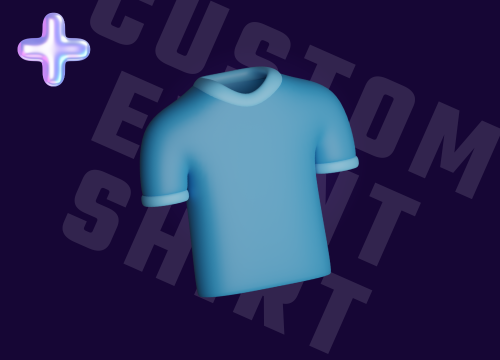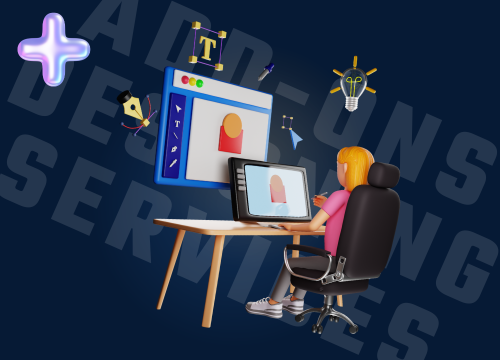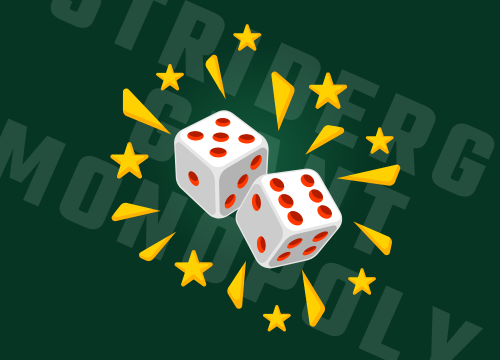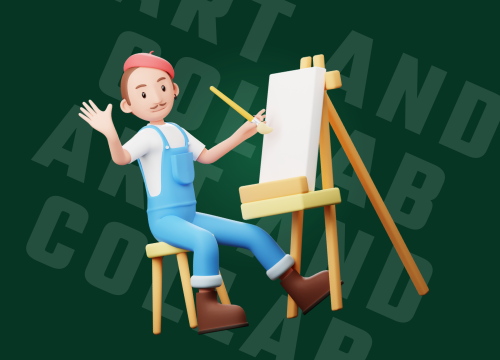15 Improv Games for Work Settings
You have found our list of improv games that’s curated for work settings!
Improv games are acting exercises that encourage participants to react in real time instead of following a script.
Examples include “Questions Only”, “Excuses”, and “Yes, And….”. These activities help participants practice quick-thinking, communication, and problem-solving skills. Often used as icebreakers, team-building exercises, or energizer for meetings, these games are ideal for fostering collaboration and camaraderie among colleagues.
These improv games can be played together with this list of team building games for Gen Z, and are similar to DIY team building activities for Gen Z.
This article contains...
Key Features of Improv Games for Team Building In Office:
- No Script: Players must think on their feet and make up dialogue and actions as the go.
- Creativity: Encourages participants to step out of their comfort zones and explore imaginative ideas.
- Humour: Many games naturally lead to funny or absurd moments.
- Engagement: Keeps participants focused and present.
Here’s a curated list of improv games perfect for small or large groups in a professional or casual work environments
List of Improv Games for Work Settings
These improv games are perfect for the office work settings, especially during lunchtime or after lunch when everyone is battling a food coma. These activities showcase the creativity and individuality of professionals while energizing the group.
Improv Game Name: Questions Only
Players act out a scene by speaking exclusively in questions. Any hesitation or answering in statements results in elimination. This fast-paced activity hones creativity and reflexes while sparking plenty of laughter.
Example
Scene: Two colleagues are trying to fix a printer that keeps jamming.
- Player 1: “Did you try turning it off and on again?”
- Player 2: “Why would I do that?”
- Player 1: “Do you have a better idea?”
- Player 2: “Is it even plugged in?”

Improv Game Name: Yes, And…
This improv exercise fosters quick thinking while listening attentively. Participants build a narrative by agreeing with their partner’s statement and adding new details. Colleagues can make it more competitive by adding rules like not coming back to the same sentence, or reasons.
Example
Player 1: “We’re opening a cupcake shop on the moon.”
Player 2: “Yes, and we’ll offer free gravity-defying frosting lessons!”
Player 1: “Yes, and we’ll have astronaut-themed flavors like ‘Milky Way Mocha’ and ‘Zero-Gravity Vanilla.’”
Player 2: “Yes, and every customer will get a free moon rock with their order!”
Player 1: “Yes, and those moon rocks can be redeemed for discounts on our limited-edition Meteor Muffins.”
Player 2: “Yes, and we’ll host cupcake-eating competitions with anti-gravity harnesses so participants float around while eating!”
Player 1: “Yes, and we’ll partner with NASA to deliver our cupcakes to Mars explorers.”
Player 2: “Yes, and we’ll create the first interplanetary cupcake delivery service!”
Improv Game Name: Freeze
This improv game for office settings requires attentive listening! Two players act out a scene while others observe. At any moment, someone yells “Freeze!” The observer steps in, replaces a player, and begins a new scene inspired by the frozen poses. This game is ideal for sparking creativity and breaking monotony during team meetings.
Example
Initial Scene: Two colleagues arguing over who gets the last donut in the breakroom.
- Player 1: “I called dibs!”
- Player 2: “You can’t call dibs on food left overnight!”
- Someone yells “Freeze!” and takes Player 1’s place, posing exactly the same.
New Scene: A photographer instructing a model to pose dramatically.
Improv Game Name: Alphabet Game
Players act out a scenario where each sentence begins with the next letter of the alphabet. This game sharpens focus and quick thinking.
Example for this improve game
- A: “Anyone seen the project file?”
- B: “Better check the shared drive.”
- C: “Can someone share the link?”
Improv Game Name: Who, What, Where
In this improv game, participants receive random prompts for a character, scenario, and location, then create a spontaneous scene. For example, a manager stuck in an elevator with an eccentric artist. This game highlights adaptability and improvisation.
Example for this team-building game at work
Random Prompts:
- Who: A project manager.
- What: Trying to meet a deadline with a broken laptop.
- Where: Stuck in an airport lounge.
Players use these prompts to create a hilarious and relatable office-themed scene.
Improv Game Name: Half-Life
Players perform a one-minute scene, then repeat it in 30 seconds, then 15, and so on until it becomes absurdly fast-paced. This game can get the participants’ adrenaline rush, encouraging concise communication and exaggeration for comedic effect.
Example
Scene: A colleague gives a pep talk before a big client pitch.
- 1-Minute Version: The colleague motivates their team with a detailed and heartfelt speech.
- 30-Second Version: The same speech is delivered faster, focusing on key points.
- 15-Second Version: Exaggerated and rushed.
- 7-Second Version: Over-the-top dramatic!
Get it get it?
Improv Game Name: Party Quirks
One player hosts a party while others act as quirky guests with unique traits. The host guesses the quirks based on the interactions.
Example Prompts
- A colleague who speaks only in metaphors.
- An intern who thinks they’re the CEO.
- Someone acting as if they’re in a musical.
- A coworker who thinks they’re on a reality TV show.
- Someone obsessed with spreadsheets and keeps showing charts.
- A tech wizard who thinks every device has feelings.
Improv Game Name: Conducted Story
A “conductor” points to players who take turns continuing a shared story. This improv activity at work emphasizes listening and seamless collaboration.
Example
Story Prompt: “How our team accidentally went viral on social media.”
- Conductor points to Player 1: “Once upon a time, our team had a small idea…”
- Switches to Player 2: “But then the marketing team tweeted it during a trending topic…”
- Switches to Player 3: “And somehow, the CEO of a Fortune 500 company retweeted us!”
Improv Game Name: What Are You Doing?
Players mime an action, and when asked, “What are you doing?”, they respond with something completely unrelated. The next player mimics the new action. This game promotes thinking outside the box and laughter.
Example
Scene: Players are working from home.
- Player 1: Pretending to water plants.
- Player 2: “What are you doing?”
- Player 1: “I’m skydiving into a volcano!”
- Player 2: Starts pretending to skydive.
Improv Game Name: Props
In this improv office game, players are handed random objects and must find unconventional uses for them in a scene. This activity encourages creative problem-solving and innocation, perfect for brainstorming sessions.
Example
Random Object: A stapler.
Creative Uses:
- A futuristic communicator device.
- A high-tech, portable selfie stick.
- A revolutionary ergonomic stress-relief tool.
Improv Game Name: Emotional Rollercoaster
This improv game can get very dramatic! Participants act out a scene, switching emotions on the spot as directed. For example, shifting from enthusiasm to frustration to joy. This game fosters adaptability and empathy, key workplace skills.
Example
Scene: Team members find out their meeting has been rescheduled.
- Director calls: “Excited!”
- Players: “Yes! More time to prepare!”
- Director calls: “Frustrated!”
- Players: “But now we have to adjust our entire day!”
- Director calls: “Overjoyed!”
- Players: “Hey, maybe it means free snacks in the new meeting!”
Improv Game Name: New Choice
During a scene, the facilitator yells “New choice!” to prompt players to revise their last line or action. This twist encourages agility in decision-making and adds unexpected humor.
Example
Scene: Two colleagues discussing a new project.
- Player 1: “We should launch it next month.”
- Director: “New choice!”
- Player 1: “We should launch it next week!”
- Director: “New choice!”
- Player 1: “We should launch it yesterday!”
Improv Game Name: Superheroes
One player starts as a superhero with a unique power (e.g., “Spreadsheet Savior”), and others join as quirky heroes with increasingly absurd abilities. The team collaborates to solve a humorous office problem.
Example
Scene: Saving the office from a Wi-Fi outage.
- Hero 1: “Spreadsheet Savior” (instantly organizes everything into offline sheets).
- Hero 2: “The Debugger” (fixes bugs by typing in binary).
- Hero 3: “Coffee Conqueror” (provides endless caffeine to keep everyone motivated).
Improv Game Name: Excuses
Players concoct wild but believable excuses for a fictional situation, such as missing a deadline. Others can chime in to embellish the story. This game develops storytelling and communication skills.
The point of the game is to think up excuses that are extraordinary and entertaining yet not too outrageous.
Example
Accusation: “Why did you miss today’s stand-up meeting?”
- Player 1: “I accidentally got locked in the supply closet.”
- Player 2: “It’s true—I had to call building security to let them out!”
- Player 3: “And then we discovered the supply closet had been turned into a secret escape room.”
Improv Game Name: Sell It to Me
Participants grab a nearby object and pitch it as a revolutionary product in under one minute. For instance, a stapler becomes a multi-tool for creative brainstorming. This game sharpens persuasion and presentation skills. Maybe play with the marketing team and see which team does it better!
Example
Object: A desk lamp.
- “This isn’t just a lamp—it’s a productivity powerhouse! Its ergonomic glow increases focus by 300%. And look, it doubles as a mood light for brainstorming!”
Bonus Improv Game: Silent Scene
What if we make the game a little twist. Now, no one can speak. Players act out a scene without words, relying entirely on body language and facial expressions. This activity encourages non-verbal communication, an essential workplace skill.
Improv games are versatile and can be tailored to fit various purposes, from icebreakers at work to energizers in a classroom. They are excellent for fostering creativity, teamwork, and a sense of fun in any group setting.
These improv activities are ideal for team-building, energizing meetings, or simply breaking the ice in professional settings. They not only build camaraderie but also enhance quick-thinking and collaboration skills among colleagues.
Why should you do group improvisation games for team building?
Improv games are a fun way to level up team bonding while teaching you to think fast and stay chill under pressure. They boost communication and listening skills, plus they’re the ultimate icebreakers. If your team can laugh at goofy moments together, they’ll feel way more comfortable sliding into each other’s DMs for help or advice later.
What's next?
Braver Strides transforms team-building into unforgettable experiences, breaking the mold with impactful debriefings that leave lasting impressions. With our in-house professional emcee, armed with expertise in psychology, we guarantee to elevate your team’s energy and connection. From planning to execution, we handle every detail—just bring your team, and we’ll take care of the rest. Let’s make your next team-building event legendary!
Contact us today to arrange your very own team building event and discover how this innovative approach can bring your team closer together while making a difference in the community.
LET'S START PLANNING YOUR NEXT
TEAM BUILDING CSR PROGRAM TRAINING PROGRAM CORPORATE EVENT RETREAT EVENT
EVENT EXPERIENCE ADD-ON
Add some extra spice to your event!
HEY! YOU MAY ALSO LIKE
Some of our trending activities! Mix and match for MEGA fun session!














